Strawberries are big business. Really big business. Since everyone loves strawberries, a billion-dollar industry has developed in order to meet the demand of consumers in America and around the world. California leads the world in strawberry production, but Florida, North Carolina, and other locations produce many tons of harvested berries annually.
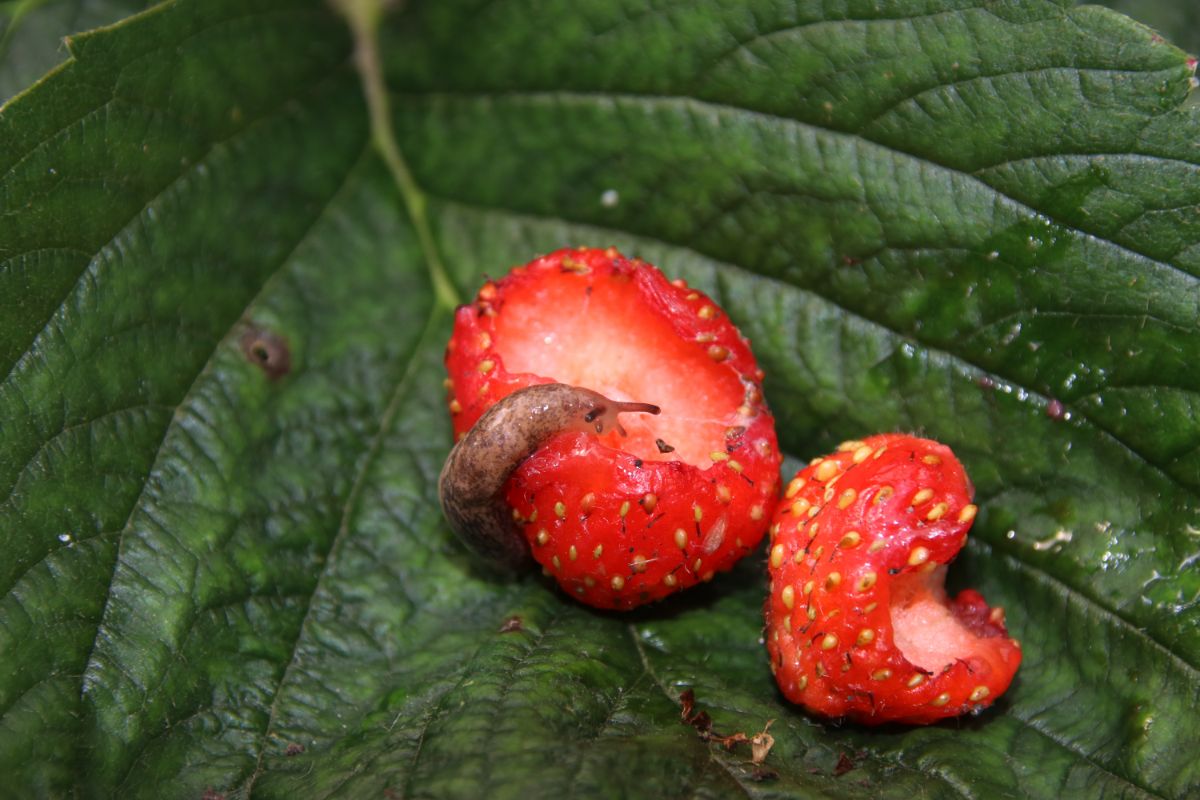
But, humans aren’t the only entities that love strawberries. Bugs, slugs, and fungi love to feast upon the nutrient-rich fruits and plants. The more fruits are destroyed, the less the hard-working farmers can sell to salivating consumers. To increase the harvest, therefore, most strawberry producers have developed techniques and practices that allow for maximum yield and minimum loss. The widespread use of fumigants and pesticides has become mainstream.
This conflicts with trend toward eating organically that is gaining prominence. Entire health food and “natural” stores have become well-established simply by eschewing the conventionally-grown produce and treated products, despite the fact that the organic versions often cost more. Additionally, organizations that provide information about the unlabeled “ingredients” in the produce we consume have filled a niche by monitoring and then publishing the results of tests performed on popular items in the produce section of the supermarket.
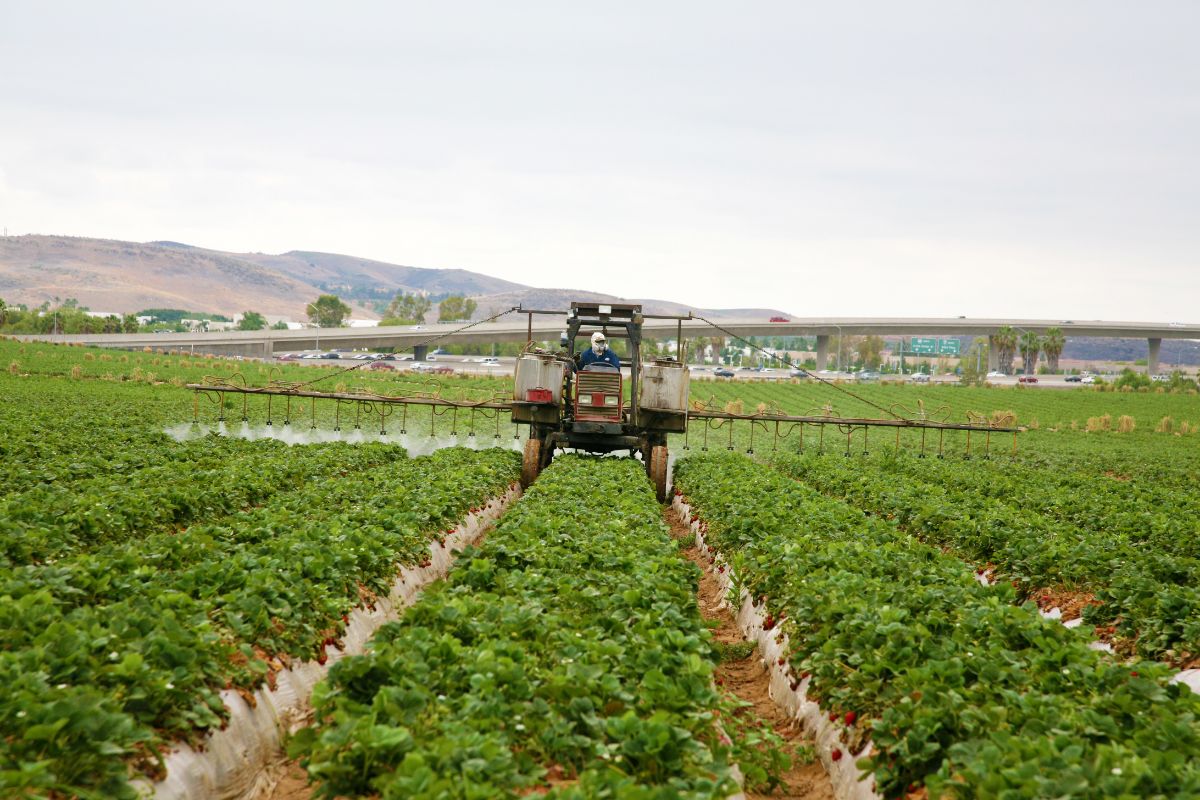
One such organization is the Environmental Working Group (EWG).
Each year, the EWG tests numerous popular foods for chemical residues that remain after the foods reach the shelves or displays. They then produce their “Dirty Dozen” and “Clean Fifteen” lists of the most-contaminated and least-contaminated foods. As long as they have produced the list, unfortunately, they have reached this conclusion: strawberries are dirty. Strawberries that are not organically grown (most are not) are laden with chemical residues from pesticide sprays and others used in the process of growing them. For consumers concerned about ingesting foreign substances, this is problematic.
The two choices for those not willing to consume conventionally-grown berries are:
1. Spend significantly more money to buy only organic strawberries
2. Grow your own strawberries
This site is here to help with that second option! If you need additional motivation, here are Reasons to Grow Your Own Strawberries. If you are already committed to growing them yourself and just need to order plants, a complete directory of suppliers is available here: Buy Strawberry Plants.
If you want to read more about the Environmental Working Group’s latest study, you can go here: EWG Summary. The fact that strawberries are dirty is evident in their second place ranking (see the Full List). Only apples exceed strawberries for pesticide residues.


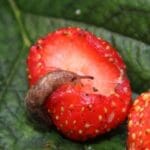


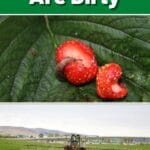
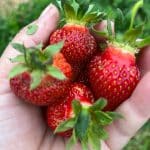


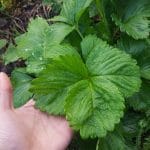
Fran Keem says
Ok, so strawberries are dirty. If you don’t like that then clean them. The berries I purchased this week have instructions printed on the container to clean them before use. Besides that, we need to rely on real data. Lets see the results of USDA sponsored university studies that actually verify that the chemical residues on the berries are that bad. Are the chemical residues potent enough to be bad? Is washing berries sufficient? Just because the berries were treated with chemicals doesn’t automatically mean that they are unhealthy. Lets see some real data. Lets rely on the hard science.
Dan says
Hello, eat all the conventional strawberries that you want. However, if you are interested in the health of our planet and the health of yourself, you will eat nothing but Organic strawberries!The EWG is a credible and important consumer oriented organization dedicated to helping us reduce the amount of dangerous chemicals we ingest daily, accumulating in our bodies causing sickness and disease.
CicutaDouglasii says
EWG promotes ignorance largely based on pseudoscience quackery. I am highly disappointed that you would lend any credibility to this group of fearmongers.
Straw Berry says
CicutaDouglasii,
Thanks for voicing your concerns. Do you have any information to provide us detailing your claim of pseudoscience quackery on the part of the EWG? Thanks!
Safe Produce says
Organic and conventional strawberries are safe to eat and we should all be eating more. The EWG’s source data for the list comes from the USDA PDP report. You can read the report on our website here: http://www.safefruitsandveggies.com/residue-research/what-consumers-should-know-2011-pesticide-data-program-report
The USDA PDP report shows that in the cases where pesticide residues are found they are at vanishingly low levels and well below the tolerances set by the EPA. Read the report and eat your fruits and veggies!